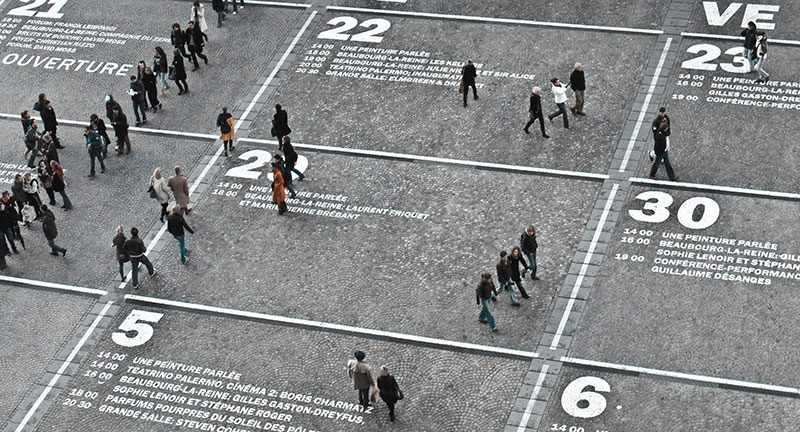Global Center of Spatial Methods for Urban Sustainability (GCSMUS)

Project Description
The “Global Center of Spatial Methods for Urban Sustainability” (GCSMUS) is funded by the German Federal Ministry for Economic Cooperation and Development (BMZ) via the DAAD program “Higher Education Excellence in Development Cooperation – exceed” and based at the Technische Universität Berlin (Speakers: Prof. Dr. Nina Baur and Prof. Dr. Angela Million, Coordinator: Dr. Ignacio Castillo Ulloa). GCSMUS connects 48 institutional partners from 48 countries and 8 world regions. Focusing on the Sustainable Development Goal #11 of the Agenda 2030 “Make cities and human settlements inclusive, safe, resilient and sustainable”, the center aims at developing transdisciplinary spatial methods in order to improve both the academic education in the spatial disciplines (e.g. architecture, geography, landscape planning, sociology, traffic planning, urban planning) and planning practice via evidence-based and low-impact urban development (LIUD). In order to achieve these goals, the center is organized as a peer-learning process and will implement several strategic Actions between 2020 and 2024 such as combined teaching-research-courses, Ph.D. and post-doctoral research projects, practical-empirical implementations, workshops and international conferences. More information can be found on: www.mes.tu-berlin.de/GCSMUS.
Webseite
Please note that the following links all lead to the same website and are interchangeable:
www.mes.tu-berlin.de/spatialmethods
www.mes.tu-berlin.de/urbansustainability
Project Description
The “Global Center of Spatial Methods for Urban Sustainability” (GCSMUS) is funded by the German Federal Ministry for Economic Cooperation and Development (BMZ) via the DAAD program “Higher Education Excellence in Development Cooperation – exceed” and based at the Technische Universität Berlin (Speakers: Prof. Dr. Nina Baur and Prof. Dr. Angela Million, Coordinator: Dr. Ignacio Castillo Ulloa). GCSMUS connects 48 institutional partners from 48 countries and 8 world regions. The partners seek to introduce the use of social science research methodologies for the advancement of urban sustainable development, by connecting social sciences methodology, via knowledge transfer, exchange and implementation, with urban policy-making, planning and design. In light of the Sustainable Development Goals of the United Nations’ Agenda 2030, the GCSMUS focuses on the SDG #11 (“Make cities and human settlements inclusive, safe, resilient and sustainable”). In order to contribute to the achievement of the SDG11 targets, the center’s main actions revolve around the advancement of five strategic elements – the principle of 5 E’s which are to be implemented between 2020 and 2024:
- Education: Building a global methodological network via international conferences,
- Experience: Gaining applicable skills in research through combined teaching-research-courses,
- Evaluate: Reflecting on methods via writing a PhD Thesis and developing project proposals for post-doctoral research,
- Exchange: Gaining applicable skills in practice through practical-empirical implementations and
- Enhancement: Workshops for bridging the gap between research and professional work.
The Actions will be coordinated by Action Speakers, namely Prof. Dr. Nina Baur (TU Berlin, Germany), Prof. Dr. Gabriel Faimau (University of Botswana, Botswana), Prof. Dr. Fraya Frehse (University of São Paulo, Brazil), Prof. Dr. Angela Million (TU Berlin, Germany) and Prof. Dr. Gaurav Raheja (IIT Roorkee, India). Outcomes derived from planned actions are to
- inform the practice of design disciplines (e.g. architecture, urban design, landscape architecture), urban planning and policy-making initiatives that address dynamics of inclusion/exclusion, safety and resilience in cities throughout developing countries and
- lead to more excellence in education of the spatial disciplines (e.g. architecture, geography, landscape planning, sociology, traffic planning, urban planning).
More specifically, the GCSMUS puts forward an innovative methodological stance that attempts to bring together research methods of the social sciences and research methods deployed in design disciplines, urban planning and policy making, to then co-produce enhanced spatial methods for promoting urban sustainability in the form of evidence-based and low-impact urban development (LIUD).
This is conceptualized explicitly as a peer-learning process – with most events taking place in Brazil (America), Botswana (Africa), Germany (Europe) and India (Asia) –, for there is a need, in both developed and developing countries, to close implementation gaps of LIUD approaches and cultivate transdisciplinary methodology.
More information can be found on: www.mes.tu-berlin.de/GCSMUS
